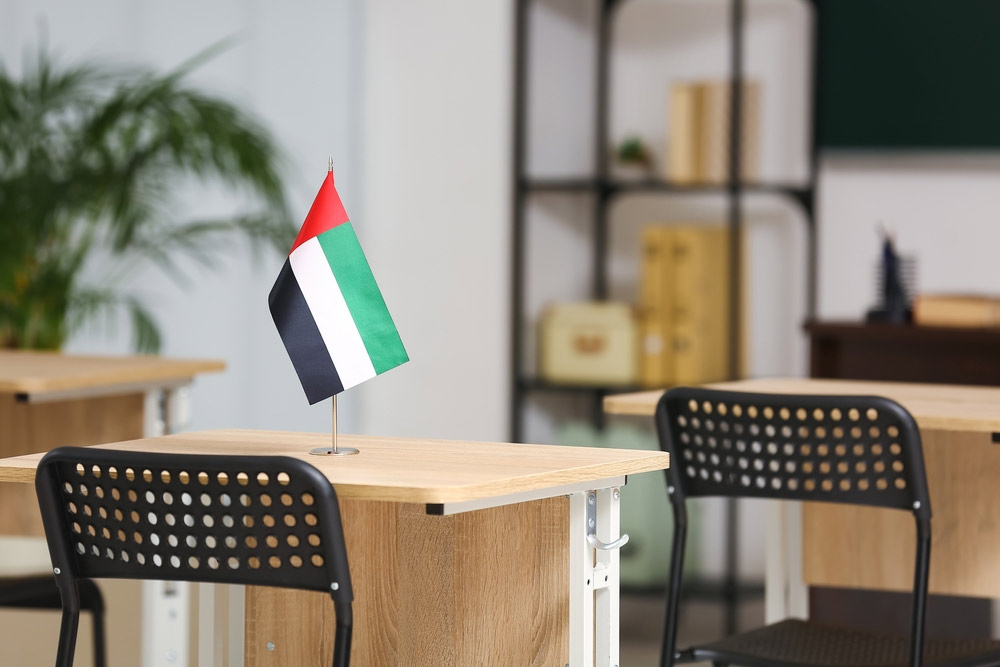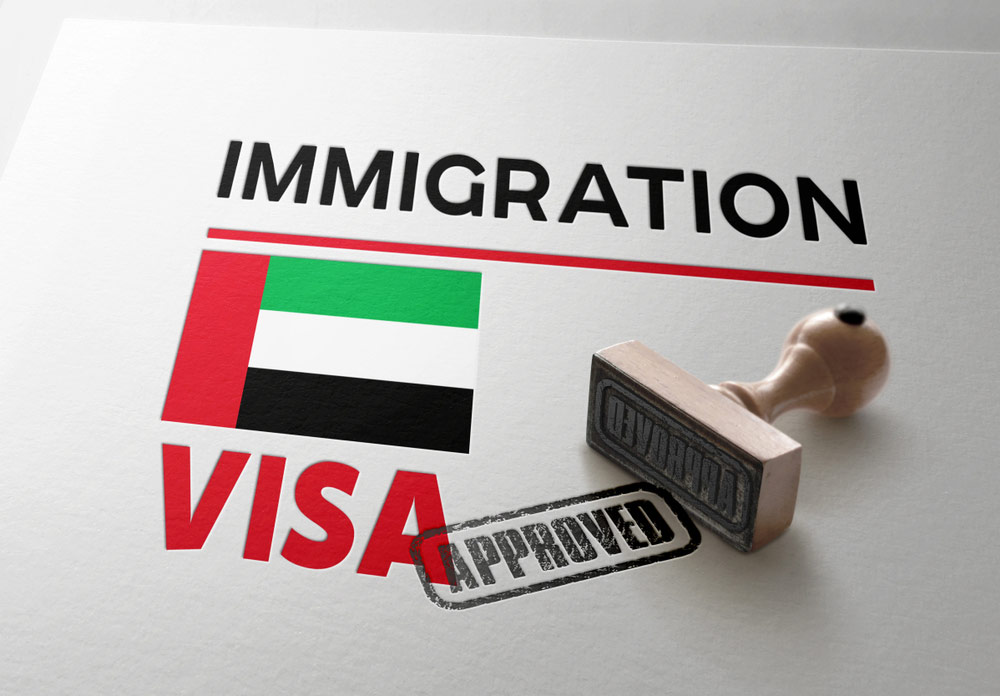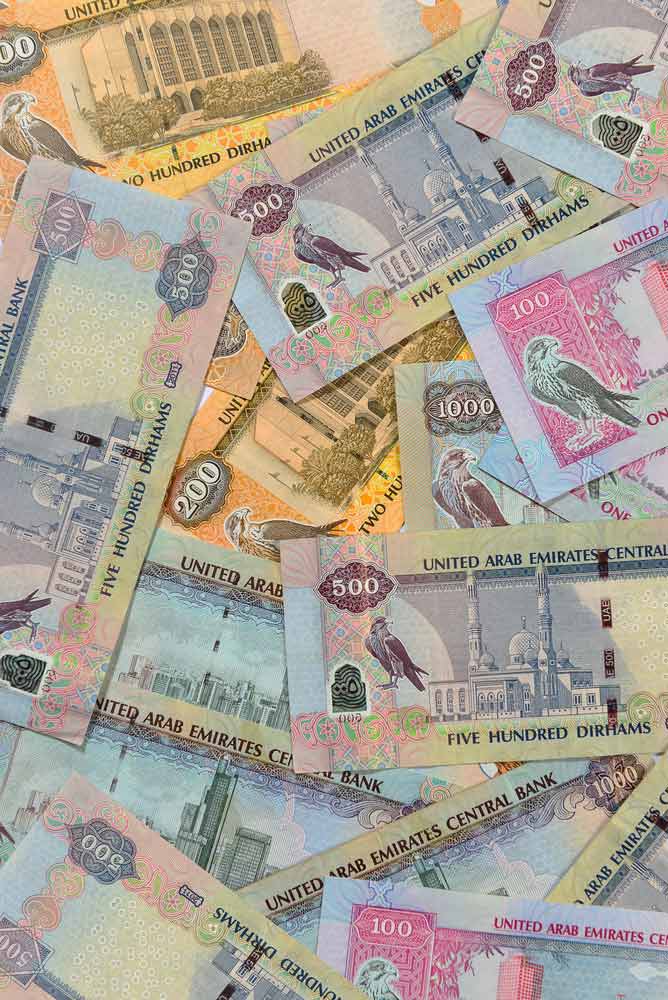Study in Dubai from Bangladesh for Higher Education

Study in Dubai from Bangladesh for higher education opens up a world of opportunities for aspiring students. Dubai, a vibrant and cosmopolitan city in the United Arab Emirates, is renowned for its modern educational facilities, diverse academic programs, and a welcoming environment for international students.
The city’s warm hospitality and cultural diversity create a welcoming environment for students from around the globe. Interacting with people from different backgrounds broadens horizons and enhances the learning experience. Dubai’s safe and stable environment provides a secure setting for academic pursuits. Modern infrastructure, state-of-the-art facilities, and a lively social scene enrich student life. Beyond academics, studying in Dubai opens doors to personal and professional growth. Its strategic location offers exposure to emerging markets and networking opportunities. Moreover, Dubai’s blend of tradition and modernity offers an exciting cultural adventure. Students can explore historical sites, experience local customs, and enjoy contemporary architecture and entertainment.
This comprehensive guide is tailored to provide Bangladeshi students with the latest information on studying in Dubai, including details on student visa requirements, tuition fees, available scholarships, and the pathway to a successful career post-graduation. We will also explore how students can study in Dubai without the need for IELTS, making higher education more accessible.
Why Study in Dubai from Bangladesh for higher education?

Dubai is more than just a city of skyscrapers and luxury shopping malls. Here’s why you should consider studying here:
Quality Education with a Global Outlook:
- Dubai hosts over 60 globally respected international university campuses, making it a hub for higher education.
- These campuses offer a diverse range of programs, from vocational qualifications to postgraduate degrees.
- Access tailor-made courses designed to match your unique abilities and aspirations.
Cutting-Edge Research and Innovation:
- Dubai is a thriving R&D centre, home to prestigious institutions like Moorfields Eye Hospital, Johns Hopkins, and Dubai Science Park.
- Benefit from state-of-the-art resources, laboratories, and technology.
- Engage with innovation accelerators like AstroLabs and In5.
Career Opportunities:
- Dubai’s knowledge-based economy attracts Fortune 500 companies and startups alike.
- Expo 2020 is creating hundreds of thousands of new jobs.
- Launch your own business idea in a supportive environment.
Safe and Welcoming City:
- Recent legislative changes allow extended study and post-graduation visas.
- Enjoy a rounded lifestyle free from red tape.
Dubai Student Visa Requirements
Admission Confirmation:
Acceptance letter from a licensed university or college in Dubai.
Valid Passport:
Minimum six months validity beyond the intended period of stay.
Financial Proof:
Evidence of sufficient funds to cover tuition and living expenses during the study period.
Health Insurance:
Mandatory for all students studying in Dubai.
Security Check:
Background check and clearance for some nationalities.
Medical Examinations:
Undergo tests for TB, HIV, Hepatitis B and C, Syphilis, and Leprosy.
Understanding Tuition Fees and Visa Expenses

Tuition fees in Dubai vary significantly depending on the institution and program.
For international students planning to study in Dubai, tuition fees and visa expenses are key considerations. Tuition for undergraduate programs ranges from AED 37,500 to 70,000 per year, while postgraduate programs cost between AED 55,000 to 75,000 annually.
Public universities typically charge around AED 40,000 per year, whereas private institutions may ask for AED 60,000 to AED 150,000. Visa expenses include application fees and may involve additional costs for medical testing and insurance. Students can explore scholarships and part-time work opportunities to manage these expenses.
It’s important to budget carefully for the entire duration of study, considering all associated costs such as accommodation, meals, and transportation. Prospective students should consult their chosen universities for specific fee structures and scholarship opportunities, as well as the UAE embassy or consulate for up-to-date visa information.

Essential Documents for Dubai Study Visa

Offer Letter:
From the educational institution in Dubai.
Passport Copies:
Valid for at least six months.
Passport-Size Photographs:
As per UAE visa specifications.
Bank Statements:
Demonstrating financial capability.
Academic Records:
Transcripts and certificates.
Health Insurance Policy:
Mandatory for all students studying in Dubai.
Medical Fitness Test:
Conducted in Dubai.
Scholarships: Making Education Accessible

Several scholarships are available for international students, including:
University Specific Scholarships:
Many Dubai universities offer merit-based scholarships to international students.
Government Scholarships:
The UAE government offers scholarships and financial aid to attract talented students to Dubai.
Private Foundations:
Scholarships from private entities and international organizations are also available.
Study in Dubai without IELTS
Many universities in Dubai offer alternative criteria for English proficiency, such as:
PTE:
Accepted as an alternative to IELTS by some institutions.
TOEFL:
Accepted as an alternative to IELTS by most institutions.
Duolingo:
Duolingo is another alternative to IELTS for higher studies in foreign countries.
Internal Assessment:
Some universities conduct their English proficiency tests.
High School English Medium:
Proof of having completed previous education in an English-medium institution.
Career Prospects After Graduation

Dubai’s dynamic economy offers vast career opportunities across various sectors such as finance, technology, tourism, and engineering. Graduates can avail themselves of the UAE’s liberal job search visa policies post-graduation, providing a conducive environment to kick-start their careers.
Partnering with BD Expert Education Consultancy
Choosing BD Expert Education Consultancy as your guide for studying abroad from Bangladesh to Dubai ensures that you receive comprehensive support throughout your educational journey. From selecting the right institution and program to navigating the visa application process and preparing for life in Dubai, BD Expert Education Consultancy provides personalised and expert guidance to ensure your study abroad experience is successful and rewarding.
Studying in Dubai from Bangladesh offers a unique blend of academic excellence, career opportunities, and cultural exposure. With the right preparation and support from BD Expert Education Consultancy, students can make the most of their international education journey. This guide serves as a valuable resource for Bangladeshi students considering Dubai as their destination for higher studies, providing them with the knowledge and confidence to take the first step towards an enriching educational experience abroad.
Interested?
Fill the form and we'll reach you
FAQ Related to Study In Dubai
Yes, Dubai is a popular and emerging destination for higher studies with several compelling reasons that make it an attractive choice for international students:
Quality Education: Dubai hosts a range of universities and colleges that offer high-quality education across various disciplines. Many institutions collaborate with renowned international universities, ensuring a globally recognized education.
Diverse Program Options: Dubai offers a wide array of academic programs and courses, catering to various fields and industries. Whether you’re interested in business, engineering, healthcare, or the arts, you’ll find suitable programs.
Cultural Diversity: Dubai is a melting pot of cultures, making it a welcoming environment for international students. You’ll have the chance to interact with people from all over the world, gaining valuable cross-cultural experiences.
Excellent Facilities: The city boasts state-of-the-art campuses, modern facilities, and advanced technology, creating a conducive learning environment.
Industry Connections: Dubai’s strategic location as a global business hub means that universities often have strong ties with industries and businesses, offering students opportunities for internships, practical experience, and networking.
Safe Environment: Dubai is known for its safety and low crime rates, ensuring a secure atmosphere for students to focus on their studies.
English Language: English is widely spoken and used as the medium of instruction in many universities, making it comfortable for international students to adapt.
Career Opportunities: Dubai’s dynamic economy and growth mean there are ample job opportunities, both during and after your studies. The city is a hub for various sectors including finance, technology, hospitality, and more.
Cultural and Recreational Activities: Beyond academics, Dubai offers a rich cultural scene, recreational activities, and a vibrant nightlife, providing a well-rounded experience for students.
Post-Study Work Opportunities: Dubai offers a Post-Study Work (PSW) permit that allows international students to work in the UAE for a certain duration after completing their studies, providing valuable work experience.
While Dubai offers numerous advantages, it’s important to research and choose a program and institution that align with your academic and personal goals. Each student’s preferences and circumstances vary, so consider factors such as program offerings, affordability, location, and career prospects when making your decision.
The age criteria for studying in Dubai can vary based on the level of education and the institution’s policies. Generally, undergraduate programs in Dubai are typically available to students who have completed their secondary education, usually around 18 to 20 years old. Postgraduate programs, on the other hand, often have more flexibility regarding age, focusing more on academic qualifications and career goals rather than a specific age range.
Moreover, doctoral programs and professional courses have even more diverse age groups, as these programs cater to individuals seeking specialized expertise or career advancement. It’s crucial to review the admission requirements of the specific institution and program you’re interested in, as policies can differ. If considering studying in Dubai, researching the institution’s official website or directly contacting their admissions office is advised to gather precise information about age criteria and any other relevant admission prerequisites.
In Dubai, the recognition of your qualifications hinges on several factors, including the source country of your qualifications, their level, the accreditation status of the institution, and the governing bodies in Dubai. To navigate this process effectively:
Firstly, ascertain whether the institution you’re considering is accredited by Dubai’s relevant authorities. Accreditation ensures the quality and legitimacy of education. Remember that qualifications from diverse countries are recognized, but the recognition process can vary based on bilateral agreements and the educational system of your home country. Universities and colleges in Dubai generally accept qualifications from internationally renowned institutions. However, professions like healthcare, engineering, law, and teaching might require additional evaluations or assessments for proper recognition. To ensure a smooth recognition process, meticulously gather and present your academic documents, certificates, and transcripts. Moreover, communicate directly with the institution you intend to join and research industry-specific licensing requirements if applicable. By taking these measures, you can navigate the qualification recognition process effectively and make informed decisions about your educational and career aspirations in Dubai.
Secondly, Dubai’s educational landscape shines with innovative programs aligned with emerging industry trends. The close integration of academia and industries offers students practical exposure through internships, workshops, and real-world engagement. Beyond academics, students can delve into Dubai’s rich cultural offerings, enjoy a safe and secure environment, and tap into abundant post-graduation career opportunities. The icing on the cake is Dubai’s Post-Study Work permit, enabling graduates to gain invaluable professional experience while basking in the city’s dynamic, forward-looking atmosphere.
Studying in Dubai presents international students with an array of compelling advantages. Firstly, the city’s role as a global hub fosters cross-cultural interactions, facilitating a diverse and enriching experience. With top-notch universities boasting exceptional faculties and facilities, students can access quality education while immersing themselves in a multilingual environment that promotes language skills development.
Secondly, Dubai’s educational landscape shines with innovative programs aligned with emerging industry trends. The close integration of academia and industries offers students practical exposure through internships, workshops, and real-world engagement. Beyond academics, students can delve into Dubai’s rich cultural offerings, enjoy a safe and secure environment, and tap into abundant post-graduation career opportunities. The icing on the cake is Dubai’s Post-Study Work permit, enabling graduates to gain invaluable professional experience while basking in the city’s dynamic, forward-looking atmosphere.
Secondly, Dubai’s educational landscape shines with innovative programs aligned with emerging industry trends. The close integration of academia and industries offers students practical exposure through internships, workshops, and real-world engagement. Beyond academics, students can delve into Dubai’s rich cultural offerings, enjoy a safe and secure environment, and tap into abundant post-graduation career opportunities. The icing on the cake is Dubai’s Post-Study Work permit, enabling graduates to gain invaluable professional experience while basking in the city’s dynamic, forward-looking atmosphere.
Language requirements for studying in Dubai can vary depending on factors such as the chosen institution and program. Generally, English serves as the predominant medium of instruction across many universities and colleges. To illustrate:
Primarily, most institutions necessitate international students to exhibit their English proficiency via established standardized exams like IELTS or TOEFL. The required scores can differ based on the academic level and the institution’s specifications. Alternatively, some universities accept alternative language tests such as PTE or Cambridge English exams. It’s important to note that exemptions might apply if your previous education was conducted in English or if your country employs English as the primary language. Certain institutions may also offer preparatory programs designed to enhance language skills before embarking on the main academic journey.
Ultimately, for precise information on language requirements tailored to your desired institution and program, a visit to the university’s official website or direct communication with their admissions office is advised. By understanding and fulfilling these language prerequisites, you ensure a smooth and effective academic experience in Dubai.
Certainly, it is indeed possible to pursue studies in Dubai without necessarily undergoing the IELTS (International English Language Testing System) examination. This, however, is contingent on the institution and program you intend to enroll in.
Students can have other English proficiency like Duo Lingo, PTE, MOI, OIETC.
Certainly, international students in Dubai have the opportunity to engage in part-time work while holding a student visa, though specific regulations apply. Here’s a breakdown of the key considerations:
Primarily, students on a student visa in Dubai are generally permitted to work up to 20 hours per week during regular academic sessions. However, during breaks or holidays, they may be allowed to work full-time. It’s crucial to ensure that the prospective employer adheres to proper procedures and obtains the required work permit before commencing employment. The work undertaken should align with your field of study and education, and maintaining a focus on your studies is paramount. It’s advisable to check with your university’s international student office or the relevant immigration authority in Dubai for the latest, accurate details about working conditions on a student visa. This approach ensures adherence to regulations and a positive experience throughout your educational journey in Dubai.
Certainly, scholarships play a significant role in Dubai’s education landscape, offering students financial assistance and recognition for their achievements. Here’s a concise breakdown:
Primarily, universities in Dubai extend a range of scholarships, based on academic excellence, leadership potential, specific fields of study, and diversity. Additionally, government bodies such as the UAE Ministry of Education extend scholarships to both local and international students, often covering tuition fees, living expenses, and travel costs. Private organizations and foundations also contribute, aligning scholarships with industry sectors, social causes, or special talents like sports and arts. Postgraduate students might find research grants and specialized scholarships catering to advanced study.
In your pursuit of scholarships, diligently explore eligibility criteria, application deadlines, and procedures. Navigating official university websites, government agencies, and dedicated scholarship platforms can unearth valuable opportunities. Thoroughly understanding each scholarship’s terms and applying well in advance are pivotal steps to securing financial support for your educational journey in Dubai.
Presently, after completing your studies, you can benefit from the Post-Study Work (PSW) permit, allowing you to gain practical work experience in Dubai. While this isn’t equivalent to permanent residency, it offers a valuable chance to work and contribute to your field. Should you secure employment during the PSW period, you may be eligible to transition to a work visa, extending your stay as you continue to build your career. It’s advised to stay informed about Dubai’s evolving immigration landscape and consult official sources or immigration experts for the latest insights into potential pathways to long-term residency.
Dubai is generally considered a safe destination for international students. The city takes significant measures to ensure the safety and security of its residents, including students. Here are some key points to consider:
Low Crime Rates: Dubai has one of the lowest crime rates in the world. The city is known for its strict laws and regulations, which contribute to maintaining a safe environment.
Police Presence: Dubai has a visible and active police presence in public areas, contributing to a sense of security.
Safe Public Spaces: Public spaces, including parks, shopping malls, and popular tourist areas, are well-maintained and typically safe for residents and visitors.
Cultural Tolerance: Dubai is known for its cultural diversity and tolerance. International students often find the city welcoming and respectful of different backgrounds and beliefs.
Strict Laws: Dubai’s strict legal system contributes to maintaining order and safety. However, it’s essential to be aware of local laws and customs to avoid unintentional violations.
Emergency Services: Dubai has efficient emergency services, including police, medical, and fire response teams, ensuring prompt assistance if needed.
Transport Safety: Public transportation, such as the metro and buses, is generally safe and well-maintained. Taxis are also a reliable and secure mode of transportation.
Community Support: Many universities in Dubai provide international students with support services, including safety orientations and resources to ensure a smooth and secure experience.
While Dubai is considered safe, it’s still advisable to exercise caution and adhere to local laws and customs. Being aware of your surroundings, following guidelines, and respecting local norms will contribute to a positive and secure stay. Before traveling to Dubai, it’s recommended to review the latest travel advisories from your home country’s government and to consult your university’s international student office for safety-related information specific to students.
Don't take our word for it
See what our students say about us

Md. Shahadat Hossain
MSc. In Management, BPP University, UKThanks for making my dreams come true. A worthy place that I would highly recommend for any kind of education consultation. May Allah bless them.

Mrs. Rabeya Wazed
Masters in INT'L MBA, University of Wolverhampton, UKGreat service of BD Expert Education and becoming possible for me to achieve my destination of higher education in UK. Thanks to BD Expert Education for supportive co-operation with us.

K M Kamrul Huda
Bd expert education is one of the most reliable agencies i have ever faced.The agents who are working there are the most supportive human beings.I will always recommend everyone who are dreaming to go outside should go there because they are too good with all the cases.

Usha Rani Paul
MSc in International Business, Ulster University, UKI would say BD Expert is a very trustworthy agency. They are cordially helpful to make our dreams come true. I highly recommend the students to come hear and achieve their dream.
